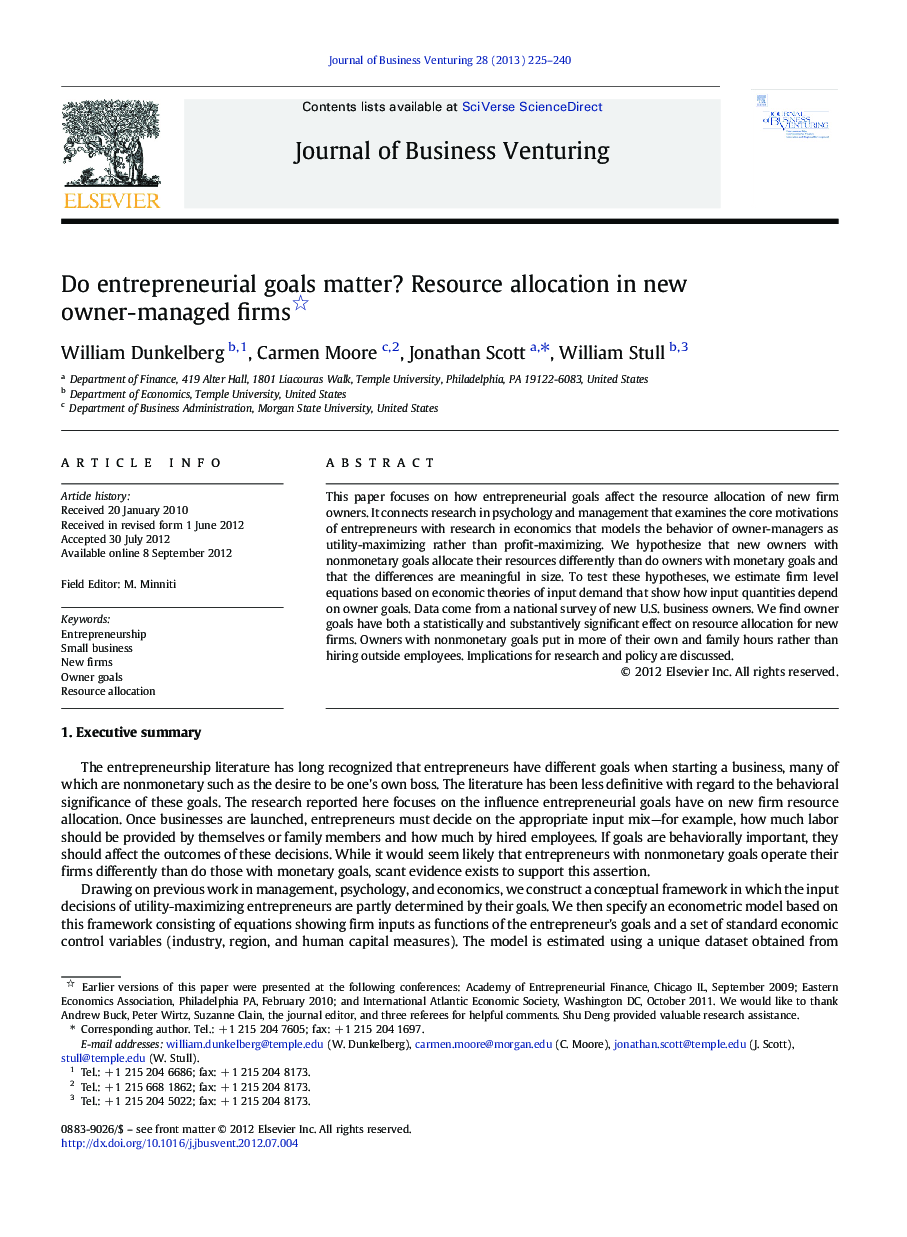| Article ID | Journal | Published Year | Pages | File Type |
|---|---|---|---|---|
| 1019409 | Journal of Business Venturing | 2013 | 16 Pages |
This paper focuses on how entrepreneurial goals affect the resource allocation of new firm owners. It connects research in psychology and management that examines the core motivations of entrepreneurs with research in economics that models the behavior of owner-managers as utility-maximizing rather than profit-maximizing. We hypothesize that new owners with nonmonetary goals allocate their resources differently than do owners with monetary goals and that the differences are meaningful in size. To test these hypotheses, we estimate firm level equations based on economic theories of input demand that show how input quantities depend on owner goals. Data come from a national survey of new U.S. business owners. We find owner goals have both a statistically and substantively significant effect on resource allocation for new firms. Owners with nonmonetary goals put in more of their own and family hours rather than hiring outside employees. Implications for research and policy are discussed.
► We show how entrepreneur goals affect labor and capital allocations in start-up firms. ► Data, including information on goals, from a national survey of 3000 new US firms. ► Nonmonetary goal entrepreneurs allocate resources differently from those with monetary goals. ► Nonmonetary goal entrepreneurs rely relatively more on own and family labor. ► Monetary goal entrepreneurs rely relatively more on outside employees.
